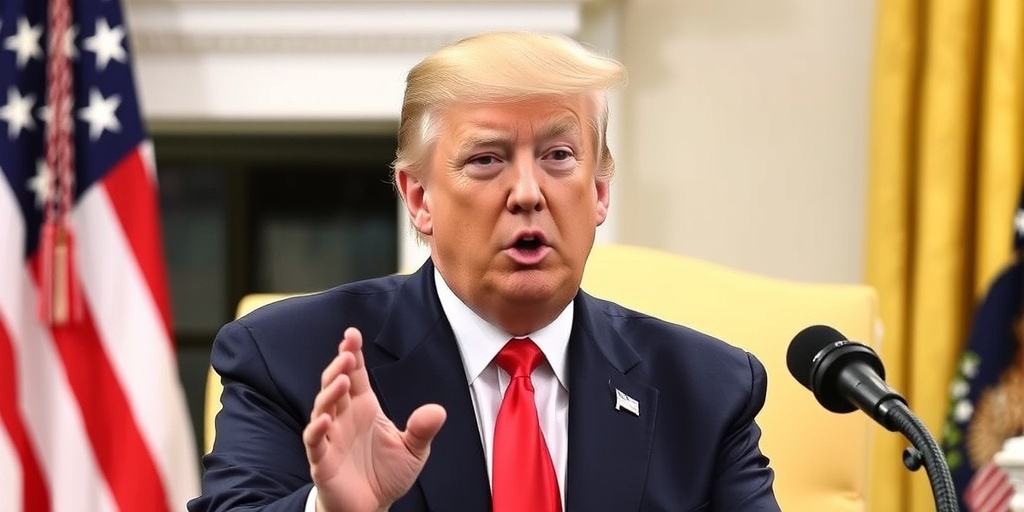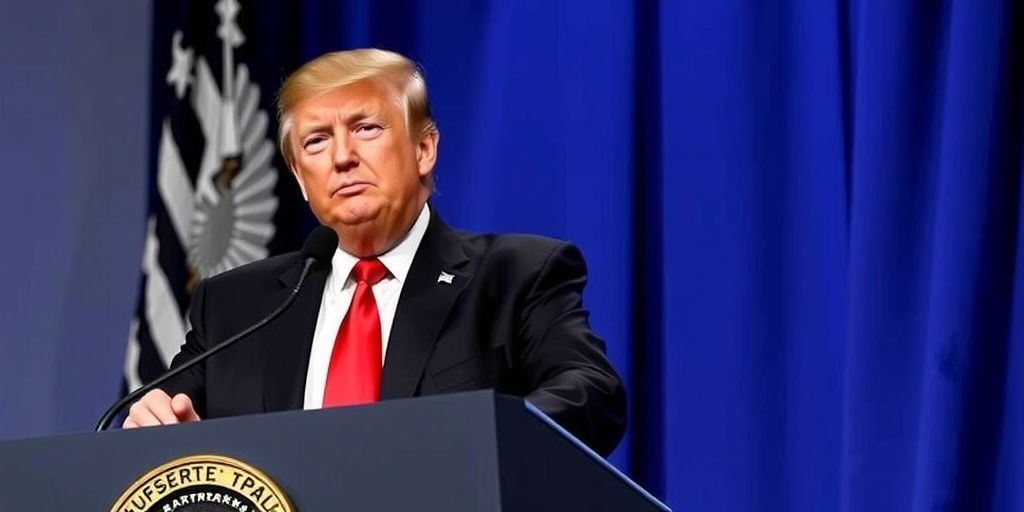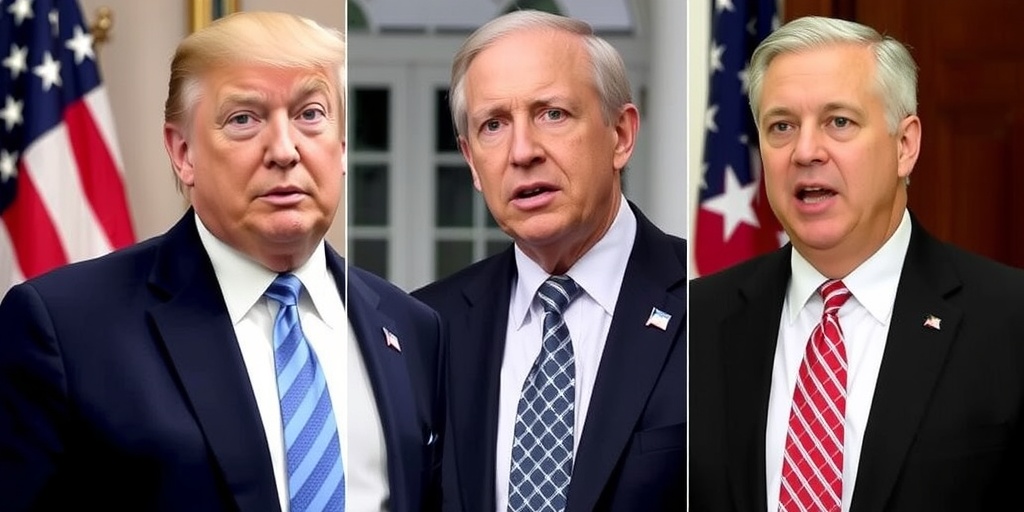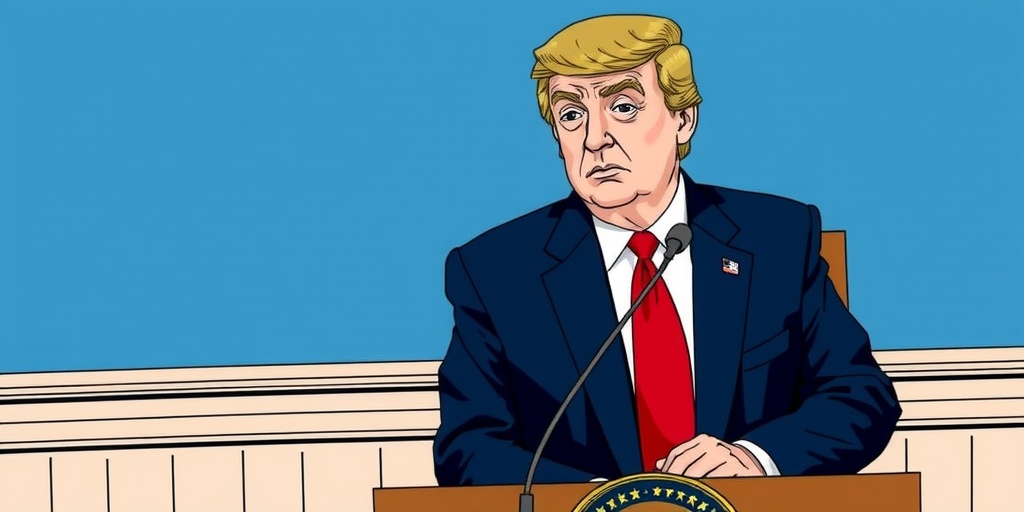Now Reading: Trump Seeks Supreme Court Halt on Order for Wrongly Deported Migrant’s Return
-
01
Trump Seeks Supreme Court Halt on Order for Wrongly Deported Migrant’s Return
Trump Seeks Supreme Court Halt on Order for Wrongly Deported Migrant’s Return
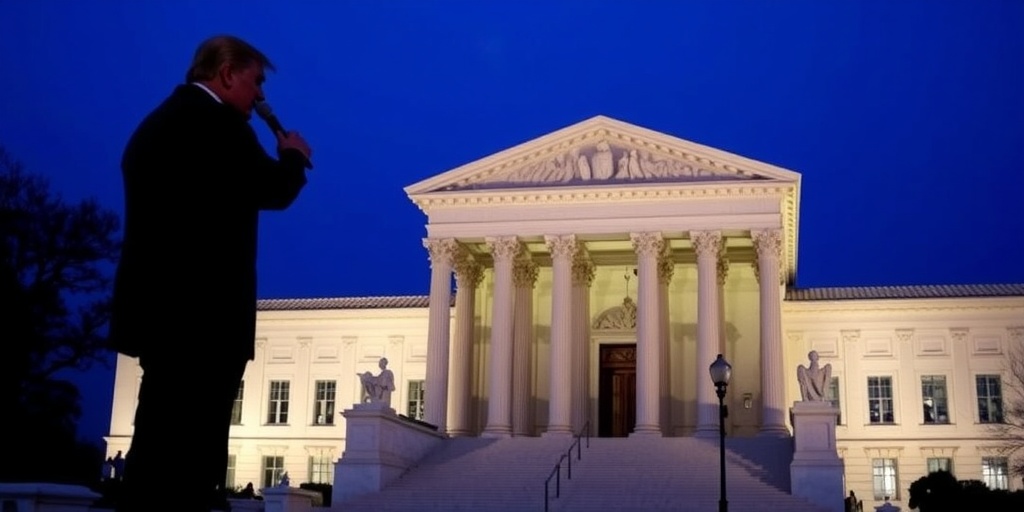
The Trump administration has taken urgent legal action to block a federal trial judge’s order that mandates the government to return a Salvadoran migrant who had been unintentionally deported back to the United States. The case centers around Kilmar Armando Abrego Garcia, a 29-year-old migrant who was sent to a notorious prison following a deportation deemed an administrative error by the U.S. government.
Judge Paula Xinis of the Federal District Court in Maryland criticized the administration for what she called a “grievous error” that “shocks the conscience.” In her ruling, she ordered that Mr. Abrego Garcia be brought back by Monday at 11:59 PM, stating that the circumstances surrounding his deportation warranted immediate humanitarian consideration.
The administration’s response, articulated by U.S. Solicitor General D. John Sauer, argued that the ruling by Judge Xinis exceeded the authority of the district court. Sauer contended that fulfilling the court’s directive would necessitate engagement with the Salvadoran government to facilitate Abrego Garcia’s return. He characterized this requirement as an act of “district-court diplomacy,” which he asserted was an inappropriate overreach of judicial power.
Sauer further warned of the implications this case could have if the precedent set by Judge Xinis were to stand. He posited that it might compel other district courts to similarly dictate U.S. foreign relations and diplomatic negotiations, effectively extending their authority over matters of international law. He expressed concern that it would allow district courts to impose deadlines on the executive branch regarding the negotiation of the return of deported aliens worldwide, fundamentally altering the landscape of U.S. foreign relations.
The administration maintains the position that Abrego Garcia is associated with MS-13, a violent gang designated as a terrorist organization. This classification, however, has been challenged by Judge Xinis. She pointed out that the accusations against Abrego Garcia relied solely on vague and uncorroborated intelligence, including the claim that he wore a Chicago Bulls hat and hoodie. The judge dismissed these claims as subtantially weak, noting they did not provide solid evidence of gang affiliation.
Penned before the administration’s appeal to the Supreme Court, a panel of the U.S. Court of Appeals for the Fourth Circuit rejected the government’s attempt to halt Judge Xinis’s ruling. The panel’s unanimous decision expressed serious concerns about the legitimacy of Mr. Abrego Garcia’s deportation. In a strongly worded statement, the judges likened the government’s action to “official kidnapping,” asserting that the United States government does not possess the legal authority to remove someone lawfully present in the country without due process.
Sauer responded emphatically, arguing that the ruling by Judge Xinis is part of a disturbing trend where courts are overstepping their constitutional bounds. He described the order as one of many recent judicial decisions from select district courts that demand immediate compliance with unreasonably short deadlines, advocating for a shift in judicial authority that disregards the separation of powers.
Moreover, the administration is simultaneously seeking Supreme Court intervention regarding another matter involving the deportation of Venezuelan migrants. It has invoked the Alien Enemies Act of 1798 to justify deportations to El Salvador. This legal strategy argues that these migrants belong to Tren de Aragua, a violent gang from Venezuela. The act permits the president to detain or deport foreign citizens during times of declared war or invasion.
On March 14, President Trump proclaimed that the members of Tren de Aragua posed a significant threat to the United States and that their actions constituted a “predatory incursion.” His administration claimed that these gang members were acting under the directives of the Venezuelan government, thus justifying the invocation of wartime powers to facilitate their deportation.
The Supreme Court has yet to comment on the administration’s emergency application regarding these deportations. This unfolding legal battle raises important questions about the balance of power between the judiciary and the executive branch, particularly in matters concerning immigration, foreign relations, and national security. The situation underscores the complexities and serious implications of U.S. immigration policy and its enforcement under the present administration. As this case progresses, its outcomes may set significant precedents for future judicial involvement in immigration matters and executive power limitations.
Stay Informed With the Latest & Most Important News
Previous Post
Next Post
-
 01New technology breakthrough has everyone talking right now
01New technology breakthrough has everyone talking right now -
 02Unbelievable life hack everyone needs to try today
02Unbelievable life hack everyone needs to try today -
 03Fascinating discovery found buried deep beneath the ocean
03Fascinating discovery found buried deep beneath the ocean -
 04Man invents genius device that solves everyday problems
04Man invents genius device that solves everyday problems -
 05Shocking discovery that changes what we know forever
05Shocking discovery that changes what we know forever -
 06Internet goes wild over celebrity’s unexpected fashion choice
06Internet goes wild over celebrity’s unexpected fashion choice -
 07Rare animal sighting stuns scientists and wildlife lovers
07Rare animal sighting stuns scientists and wildlife lovers














